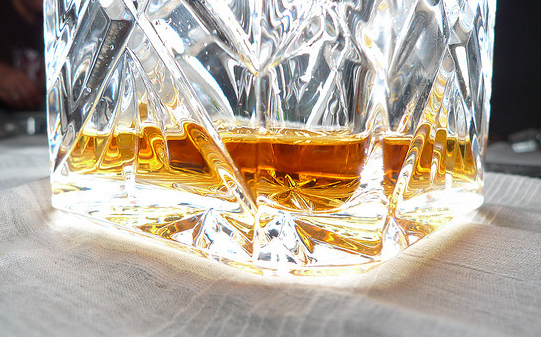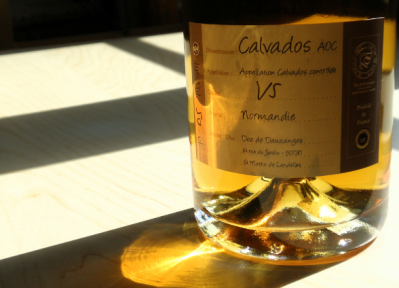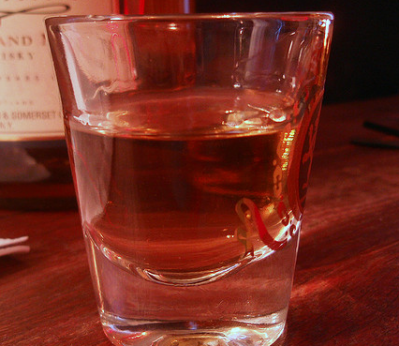Spirits Europe DG expects ECJ to resolve alcohol unit pricing acrimony

On May 3, Scottish Court of Session judge Lord Doherty refused a joint petition from spiritsEUROPE, the Scotch Whiskey Association and the Comité Européen des Enterprises Vins (CEEV), seeking judicial review of the Alcohol (Minimum) Pricing (Scotland) Act (passed in May 2012).
The trade bodies argued, unsuccessfully in this first instance before the Court’s Outer House, that the Act exceeds the legislative competence of the Scottish Parliament.
Designed to tackle problems linked to alcohol abuse, the bill includes a formula to calculate minimum pricing – the Scottish Government proposes an initial unit price of 50p/unit – which means that wine, for instance, will not be sold in the country for under £4.69 ($7.29)/bottle.
Discussing the ruling this morning, Skehan said the industry coalition would appeal within the three-week deadline, which would mean a hearing, most likely in the Autumn, before the Inner House of the Court of Session, then a possible judgment by December.
“If we win or lose there’s still an appeal to the Supreme Court in London. The very final step is probably the European Court of Justice as well, which is where we think it will probably end up,” Skehan added.
Government pricing and controls ‘not the way to go’
As an industry, Skehan said spirits players wanted to address harmful use of alcohol: “If we genuinely believed that this would help, I think you would have seen a different response from the industry.”
But he said spiritsEUROPE didn’t think MUP would work to cut out alcohol-related harm, would also “hurt our business” and was challengeable under EU law, despite Lord Doherty’s contrary view.
“When you look at all the jurisprudence on MUP, on tobacco, for instance. It’s always been turned down by the ECJ. And one way or another – I think it will end up there,” Skehan said.
spiritsEUROPE opposed the Act for setting a dangerous interventionist precedent in Europe and beyond, its director general insisted: “Philosophically, we don’t think that government intervention in markets through pricing and controls is an effective way to go.”
Confusing MUP results in Canada
Moreover, beyond sounding great politically, the effectiveness of MUP pricing hadn’t been proven, Skehan added. Data from Canada was “extraordinarily confusing”, he said, but in British Colombia and Saskatchewan figures for alcohol-related deaths were rising.
MUP risked penalizing cheaper products (brandies) in Scotland by removing their ability to compete with whiskies and other drinks via a price differential, Skehan said, while the Scottish precedent also posed a risk to strong EU spirits exports – up 20% in 2012 at €10.2bn ($13.365bn).
He applauded the European Commission for negotiating individual, bilateral Free Trade Agreements (FTAs) internationally – in the wake of a DOHA impasse – but said there was always the risk of nations trying to cut wines and spirits out of negotiations on health or religious grounds.
“We believe the Commission shouldn’t accept that such tariffs remain, because in most cases it’s pure protectionism,” Skehan said.
“The last thing we want is to give credibility to those efforts to carve out wines and spirits from FTAs. That’s the more fundamental threat for us,” he added.
EPHA slams ‘baseless, undemocratic’ industry challenge
Using the hypothetical example of South Korea – a big alcohol market with high tariffs against EU products – Skehan said that the Scottish Act could lend such nations another pretext to exclude wines and spirits from any FTA.
“The last thing we want is for the Koreans or anyone else to be able to say, ‘Look – even in Europe you have governments there creating barriers to the free movement of goods on the basis of health. So how can you stop us having the same raison d’etre?’”
But Monika Kosinka, secretary general of the European Public Health Alliance (EPHA) welcomed the Scottish court decision as a “recognition of the baseless, and undemocratic attempt by the alcohol industry to prevent an elected government from protecting the health of its population”.
The EPHA and other MUP supporters state that alcohol misuse hits the poor badly, most of whom rely on cheap alcohol to maintain the harmful habit, and tend to bear the brunt of alcohol-related harm in terms of health and social impacts.
Sir Ian Gilmore, Royal College of Physicians (RCP) special advisor on alcohol, said he was delighted by the Court of Justice decision, which “sends a strong message out to the drinks industry that the health community is not prepared to be steamrollered when the health of the public is at stake”.








